6 words you always see on Malaysian business signboards… and what they ACTUALLY mean.
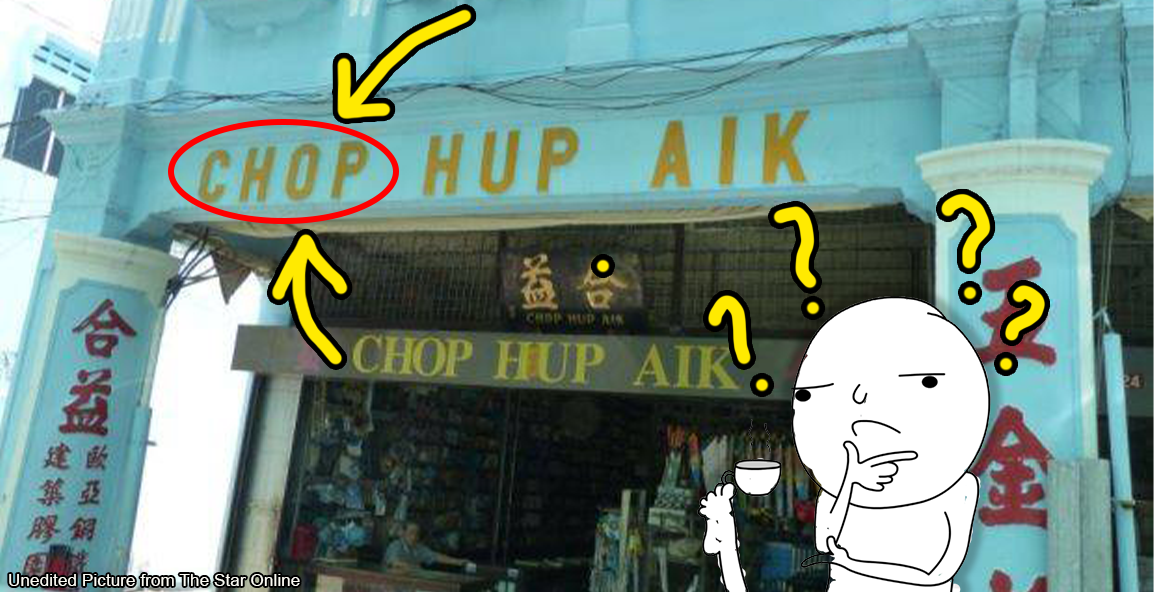
- 1.2KShares
- Facebook1.2K
- Twitter7
- LinkedIn10
- Email12
- WhatsApp31
Picture this: It’s 8.30 am and you’re driving to work when the car in front of you suddenly slows to a stop… You’ve just found yourself stuck in a traffic jam. (oh tidak~) Out of boredom, you look out the driver’s side window to observe the shop lots lining the street, reading their names aloud when a random thought materializes in your head:
“Sendirian Berhad, huh? Actually, what does that really mean ah?”, you ponder aloud, as you stare directly at the bold “SDN. BHD.” letters imprinted on the shopfront’s signboard. As your eyes begin to wander down the stretch, you start noticing other strange but familiar words like yayasan and chop…
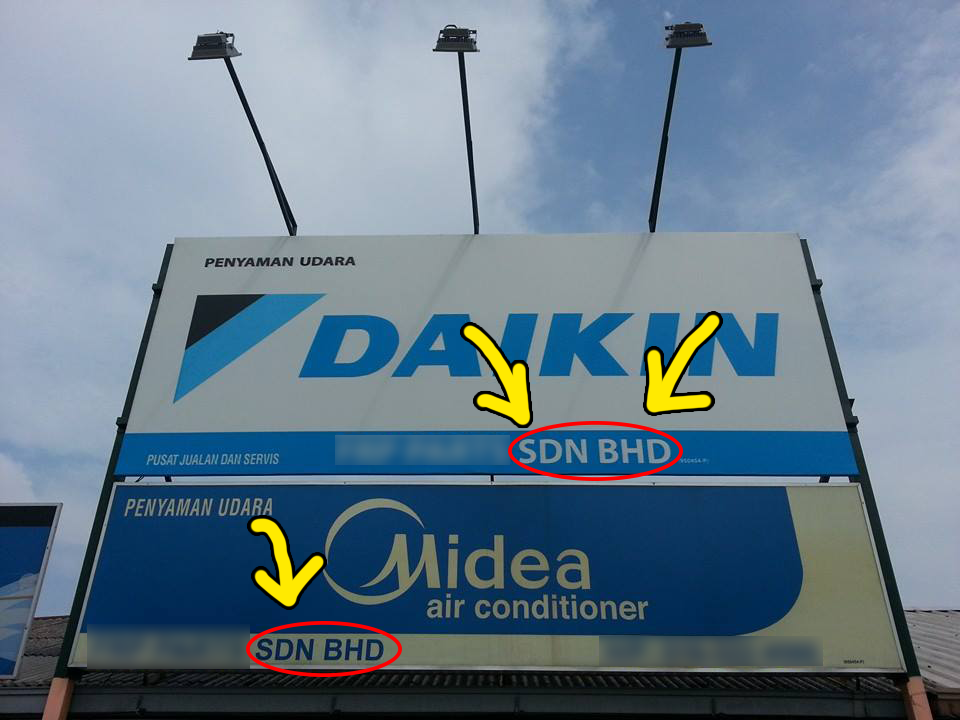
Just like our writer who came up with the idea for this article while being stuck in the depths of a traffic jam, you may not actually know what these terms truly mean; unless you’re someone who’s involved in business or works at SSM. So let us indulge your curiosity by explaining the meanings of some of the most common, but often unnoticed words you’ll be able to find on our local business signboards.
1. Yayasan
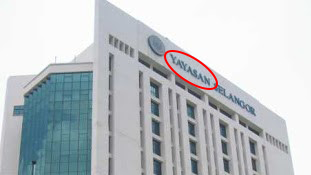
If you’re a fan of anime, or of Japanese culture in general, ‘yayasan’ may have first struck you what you’d call someone named Yaya. But of course, that isn’t the case.
‘Yayasan’, in English, translates to “foundation”. Foundations are legal non-profit organizations that exist solely for charitable purposes. There are both public and private foundations; with public foundations relying on donations from the government, corporations, the public, and even other private foundations for funding, while private foundations are only funded and controlled by a certain individual, family, or corporation.
2. Wisma
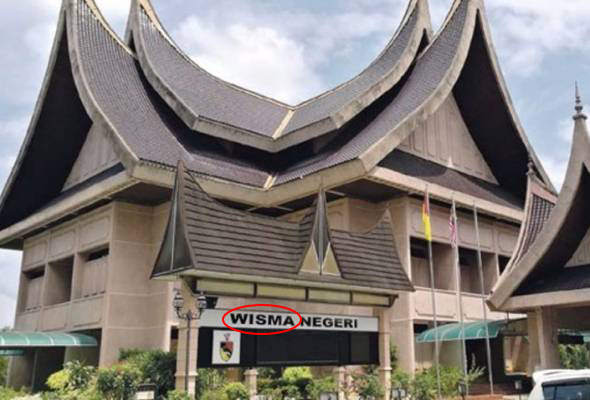
Unlike yayasan, ‘wisma’ has a more direct meaning. ‘Wisma’ means “house or building” in English. This means that in a literal sense, they are usually used to denote buildings that are owned by a specific organization/corporation.
3. Sdn. Bhd.
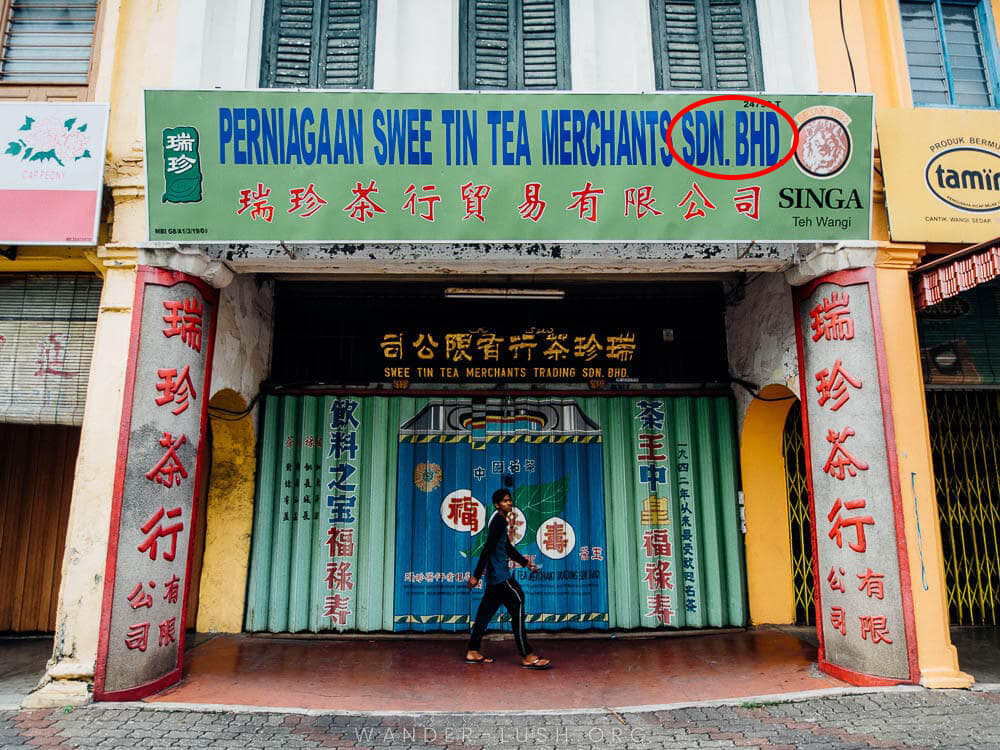
No, Sdn. Bhd. is not pronounced “suh-dun buh-hud”. It’s actually an abbreviation of ‘Sendirian Berhad’. You can thank us later for saving you from the embarrassment of accidentally mispronouncing the words.
‘Sendirian Berhad’ is a term used in Malaysia to indicate that the company is a private limited business entity. ‘Sdn. Bhd.’ companies are also one of the most popular options of business entities in Malaysia; which is why you’ll most likely find ‘Sdn. Bhd.’ written down on a majority of our Malaysian signboards.
And if you’re a business owner who’s trying to figure out what type of business you’d like to start up, or if you’re just looking for more information on Malaysian businesses, maybe you should check out this Asklegal article! They’re experts on the subject.
4. Bhd.
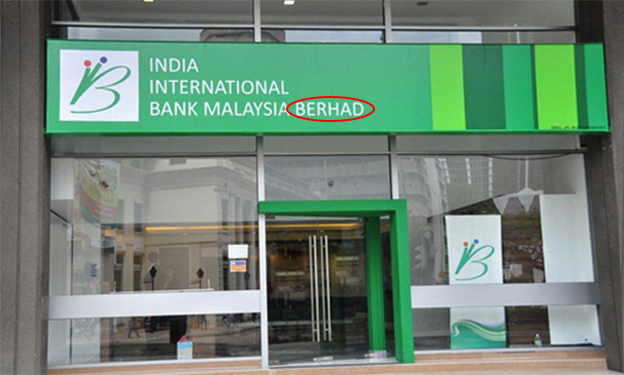
Sometimes, you may come across companies that only have the ‘Berhad’ (or Bhd.), without the ‘Sendirian’! And no, it’s not because the ‘Sdn.’ fell off the signboard. Though ‘Sdn. Bhd.’ and ‘Bhd.’ are pretty similar, they do have their fair share of differences; with the most significant being the size and the number of shareholders in the companies.
Sdn. Bhd. companies are usually small to midsized companies with a maximum of 50 shareholders, while Bhd. companies are generally bigger, with no limit to the number of shareholders in the companies.
5. Chop
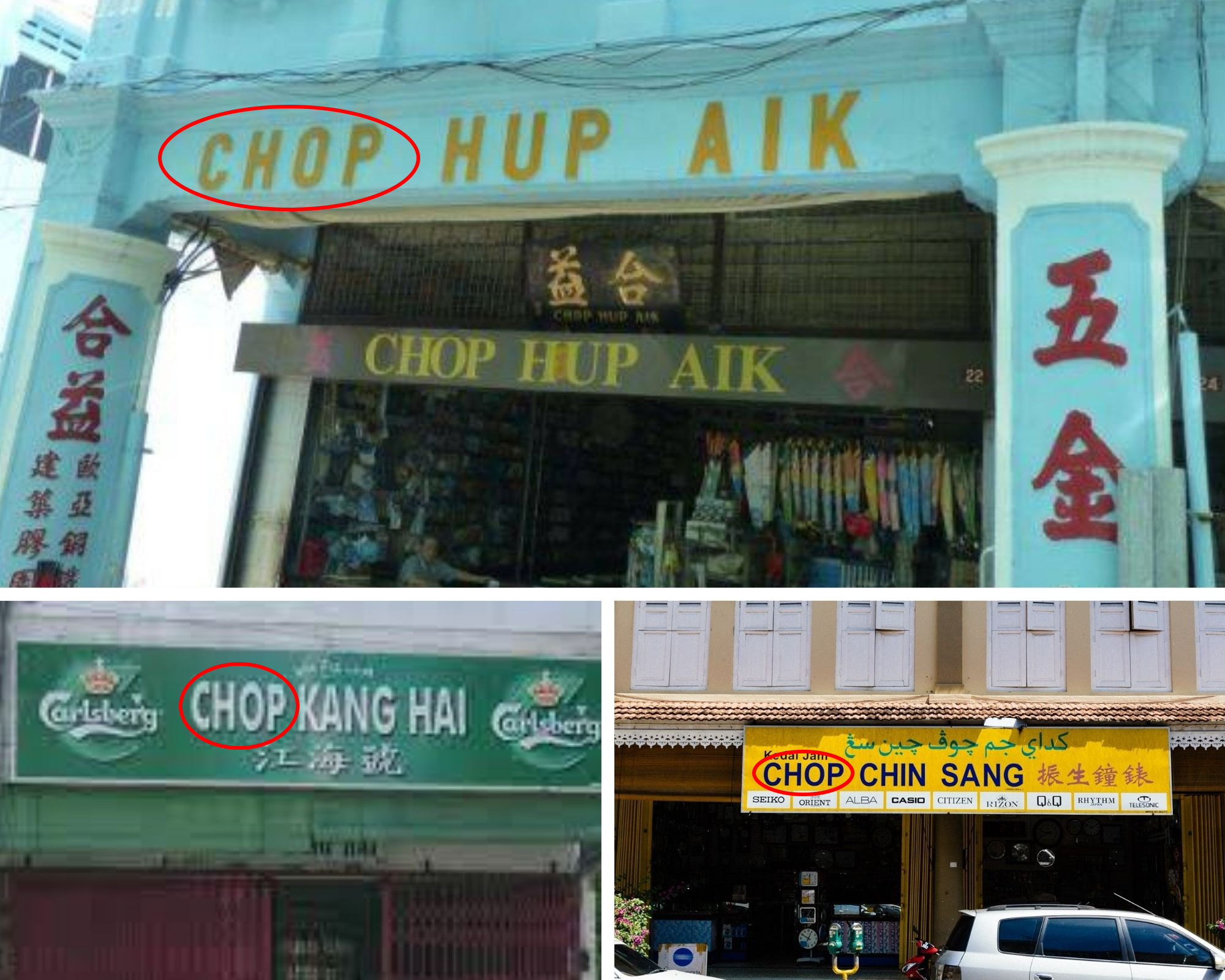
When one of our writers brought this to our attention, we didn’t believe that there were actually stores that had the word ‘chop’ in front of their store names. At first, we thought that maybe the name of the store itself was ‘chop’; but then to our surprise, we found out that it wasn’t just one store- it was quite commonly found amongst Chinese-owned stores in older areas!
Unlike the others, we couldn’t find any information online about the word “chop”, so we decided to do the next best thing and ask around online in order to figure out why this was. Here are a few theories provided by some local Malaysians, on why the term ‘chop’ is being used on Malaysian storefronts:
Theory #1: It’s an IRL Typo.

Let’s put it into perspective, okei? During CNY, our relatives usually have a relative-ly hard time pronouncing our English names because their accents are often too thick to properly pronounce English words. So if you were to imagine one of our old Chinese uncles trying to pronounce “shop” when telling the signmaker what to write on his business’s signboard, it would be safe to say that the actual outcome of the incident would result in the word “chop” being written instead.
Theory #2: “Chop”, like “Cap”, means “brand”.

This theory, as developed by Jon, seems to be a very realistic deduction. “Chop”, which sounds similar to “Cap” which means brand in Malay, could actually mean the same thing. So in this theory, the store itself could be a brand of its own, as Malaysian stores back in the olden days used to operate as a brand of their own, which may explain why it’s primarily seen on older, more vintage stores.
And though Jon’s theory seemed to be pretty solid, we still decided to ask around in hopes of getting more answers, or at least more evidence to back up Jon’s theory; to which it was. A friend of Cili-boss whose family hails from Kedah actually provided us with the same reasoning, and gave us even more shocking information…
6. Kee
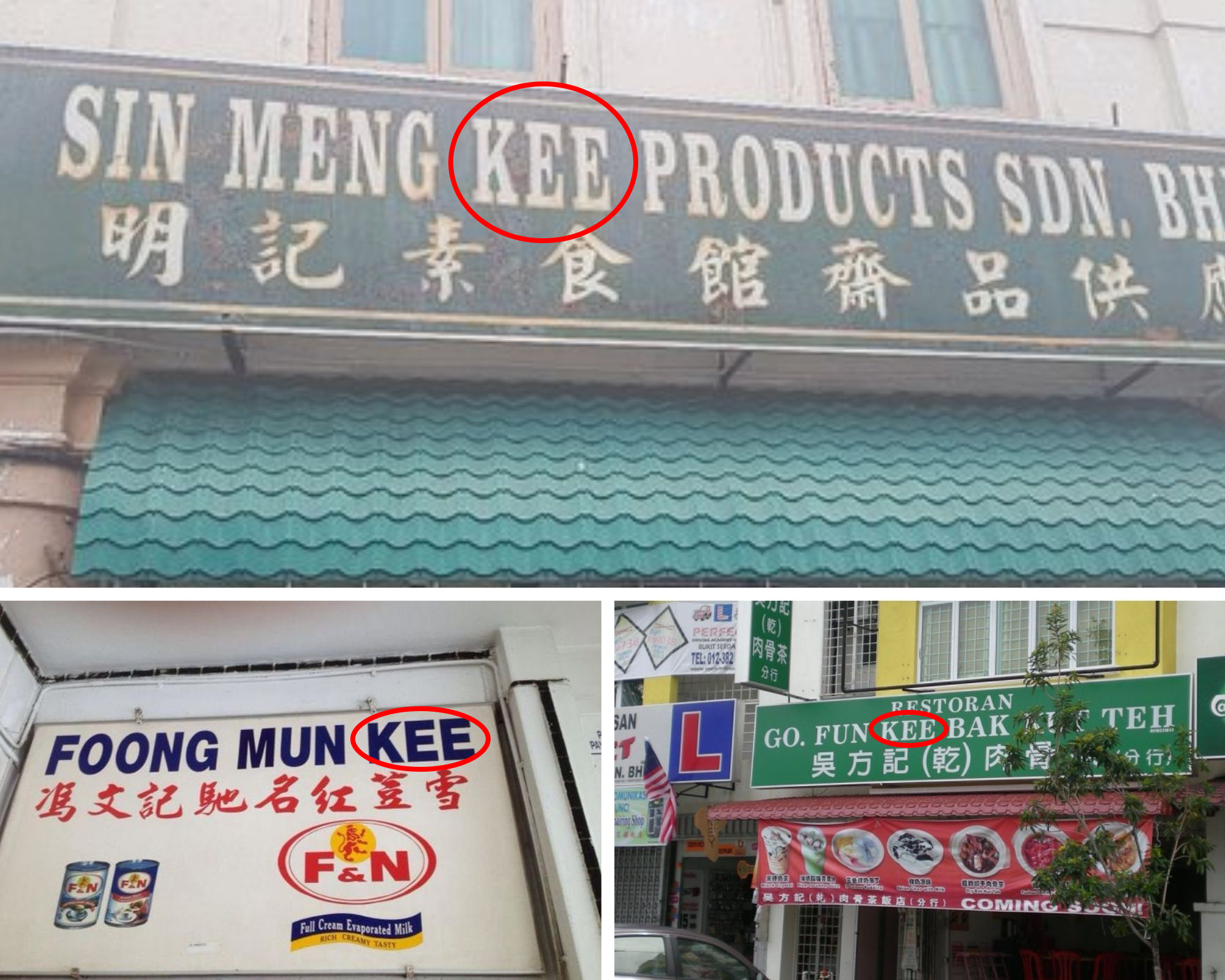
Wait- there’s more?!?!
Like ‘Chop’, You might have thought that the word ‘Kee’ on signboards may have been the names of the store owners themselves, but it may have actually been the brand of the store itself! Cili-boss’s friend mentioned that while “Chop” and “Kee” might have the same meaning, the reason why there are two terms to describe the same thing instead of just one may actually have something to do with the language dialects.
“‘Kee’ leans more towards Cantonese, while ‘Chop’ is used more by the Hokkien/Hakka dialect. It might also be a Southern Hokkien thing.” – Friend of Cili-boss.
Hang on, before you start flaming us online for not knowing basic etymology- The word “Kee” could be a person’s name, as Kee is a pretty common name. However, it could also mean this Chinese character: 記, which actually means “brand”. According to a discussion in this Quora thread, adding a 記 to the name of a store is a very traditional Chinese naming habit, and it is most commonly seen amongst very old stores. In fact, even the popular oyster sauce brand “Lee Kum Kee” practices this naming style! Initially, most of us may have thought that the brand name “Lee Kum Kee” must have been derived from the name of its founder; however, we discovered that Lee Kum Kee’s founder is actually named “Lee Kum Sheung”.
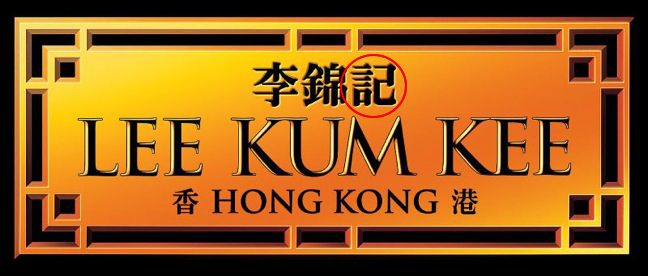
But seeing as all of these are theories, we aren’t able to confirm whether these facts are 100% true. So, if ugaiz do happen to know the reasoning behind these words, please do let us know in the comments and we’ll credit you accordingly!
Always there, but often unnoticed.
In proper terms, these ‘words’ are called suffixes and prefixes. And in the end, almost every business/company in the world has its own sort of suffix or prefix, depending on the country. In our neighbouring countries of Indonesia and Singapore, they each use terms such as PT. and PTE. LTD. respectively, as their own forms of company registration.
Here in Malaysia, we often pass by our local signboards without even taking a second glance at the suffixes transcribed within them, unaware of their meaning and etymology; with some origins being more obvious than others. And maybe you’ve learned something from reading this, or maybe you haven’t- but one thing is for sure: You’ll probably not be able to look at our local signboards the same way again.
- 1.2KShares
- Facebook1.2K
- Twitter7
- LinkedIn10
- Email12
- WhatsApp31


